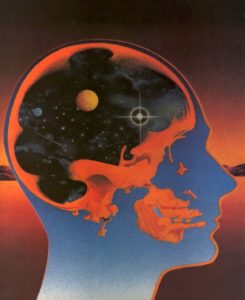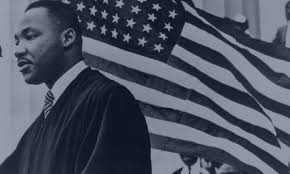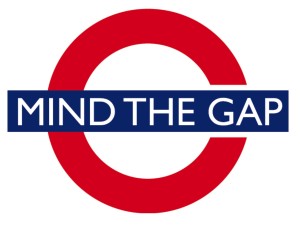Reality
Jennifer Rose ❁
February 5, 2020‘You must know what you believe & why. Only then can you know who you are & what sort of world you want to live in.’
Keep listening.
January 17, 2020When someone disagrees with you today, stay present, listen, and then let them solve the problem.
Problems are transformed when we are present.
-Judith Hanson Lasater, PhD
“By contemplation, we mean the deliberate seeking of God through a willingness to detach from the passing self, the tyranny of emotions, the addiction to self-image, and the false promises of the world. Action, as we are using the word, means a decisive commitment toward involvement and engagement in the social order. Issues will not be resolved by mere reflection, discussion, or even prayer, nor will they be resolved only by protests, boycotts, or even, unfortunately by voting the “right” way. Rather, God “works together with” all those who love (see Romans 8:28).”
The only way out and through—for either side of any dualism, including that between action and contemplation—is a kind of universal forgiveness of Reality for being what it is; it thus becomes the bonding glue of grace which heals all the separations which law, religion, or logic can never finally or fully restore.
-Fr. Richard Rohr
?1.20.2020
January 16, 2020“It really boils down to this: that all life is interrelated. We are all caught in an inescapable network of mutuality, tied in a single garment of destiny. Whatever affects one directly, affects all indirectly. We are made to live together because of the interrelated structure of reality.”
– Dr. Martin Luther King Jr, 1967.
Prayer, contemplation, is freedom and affirmation growing out of nothingness into love. Prayer is the flowering of our inmost freedom, in response to the Word. Prayer is not only dialogue with God: it is the communication of our freedom with ultimate freedom in infinite spirit. It is the elevation of our limited freedom into the infinite freedom of the divine spirit and of the divine love. Prayer is the encounter of our freedom with all the all-embracing charity which knows no limit and knows no obstacle. Prayer is an emergence into this area of infinite freedom. Prayer, contemplation, then, is not an abject procedure, though sometimes it may spring from our abjection. But prayer is not something that is meant to maintain us in servility and helplessness. We take stock of our own wretchedness at the beginning of prayer, contemplation, in order to rise beyond it and above it to infinite freedom and infinite creative love in God.
-Thomas Merton, Contemplation in a World of Action, 1965
When do we
become one with earth and stars?
It is not achieved, a young friend, by being in love,
however vibrant that makes your voice.
Learn to forget you sang like that. It passes.
Truly to sing takes another kind of breath.
A breath in the void. A shudder in God. A wind.
-Rilke, Sonnets to Orpheus I, 3
Because Jesus did not directly attack the religious and institutional systems of his time until his final action against the money changers in the temple [1], his primary social justice critique and action are a disappointment to most radicals and social activists. Jesus’ social program, as far as I can see, was a quiet refusal to participate in almost all external power structures or domination systems. Once we have been told this, we see it everywhere in the four Gospels. Jesus chose a very simple lifestyle which kept him from being constantly co-opted by those very structures, which we can call the sin system.
The city of Sepphoris was the Roman regional capital of Galilee and the center for most money, jobs, and power in the region where Jesus lived. It was just nine miles from Jesus’ hometown of Nazareth. Yet there is no record that Jesus ever went there, nor is it mentioned once in the New Testament, even though he and his father, Joseph, were carpenters or “workmen” and Jesus traveled through many other cities much farther away. He also seems to have avoided the money system as much as possible by using “a common purse” (John 12:6, 13:29)—voluntary “communism,” we might say.
Jesus was finally a full victim of the systems that he refused to worship. Is this not a much more coherent explanation of why Jesus died?
What can we learn from Jesus’ life about how we might address the systems of inequity and oppression in our own cultures? One lesson seems to me that we have to “start local.”
He simply goes around doing what he knows to be right, which he surely discovered during his long periods of solitude and silence (a form of contemplation) on the outskirts of town, and others begin to join him.
-Fr. Richard Rohr, Center for Action and Contemplation
Pro-wrestling universe.
October 29, 2016“…authenticity is a foreign concept in this world.”
And what lesson can we learn from politics importing pro wrestling’s mindset? Once you see it, you can’t unsee the connection. Worth noting that one of the key narratives of pro wrestling is the fake within the fake–someone is always claiming that the outcome is rigged. (In wrestling, of course, it is rigged. And so is the complaining.)
Pro wrestling works as a play and a medium because the people who are part of it realize that it’s fake.
It turns out that modern media is a perfect match for the pro-wrestling approach.
You can put on a show, with your own media, as often as you like. And that show is, to many, remarkable, and so it spreads.
And there lies the danger, the opportunity for pro-wrestling thinking to corrupt our society: When the fans, or worse, the participants, don’t realize that it’s fake.
In real life, the laws of physics actually work. In real life, blood feuds rarely end well. In real life, accepting the ref’s decisions is the only way to have civilization…
The filter bubble creates an echo chamber, and reality stars are pushed to be more like cartoonish pro wrestlers and less like responsible human beings. If it bleeds, it leads.
You probably work with people who are living in their own pro wrestling universe. These are people who are so in love with their version of reality and their goals that they view the real world as an affront, an intrusion on the way they insist things turn out.
Reality remains our common ground, the best one we have to work with.
-Seth Godin
Managing the gap.
August 12, 2016
‘There’s a space between where you are now and where you want to be, ought to be, are capable of being.
A gap between your reality and your possibility.
Imagine that space as a gulf or a chasm and you’ll become paralyzed, stuck in the current situation.
And refuse to see it at all and you’ll merely be self-satisfied, and just as stuck.
The magic of forward movement is seeing the space as leap-sized, as something that persistent, consistent effort can get you through.
The most likely paths are the ones where you can see the steps.
Your problem might not be that you’re not trying hard enough. It might be that you’re seeing the opportunity in the wrong way.’
Seth Godin




